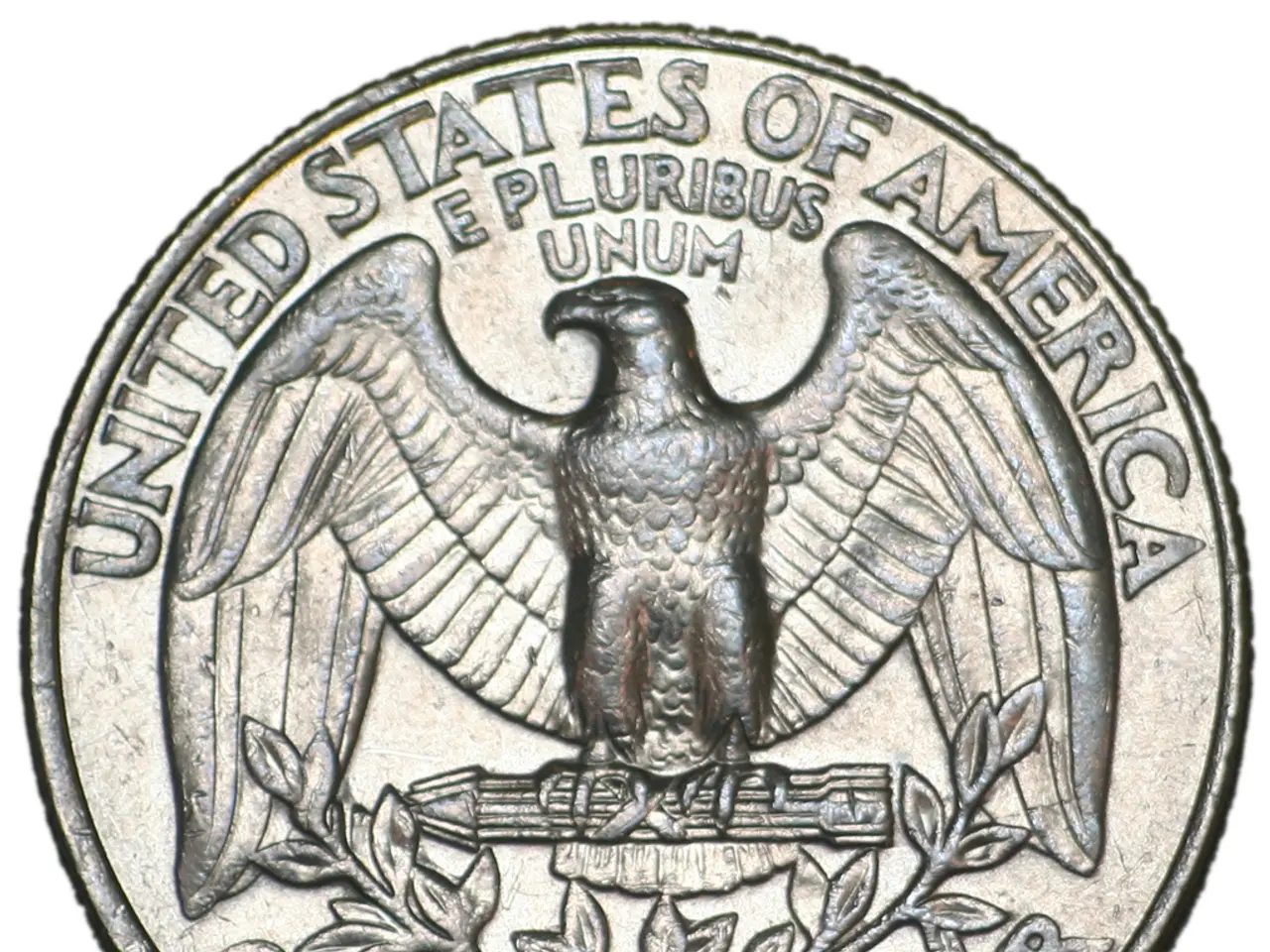Fintech powerhouse Revolut allegedly developing a stable cryptocurrency of its own, as reported.
Revolut Joins the Stablecoin Revolution
Revolut, the UK-based neobank valued at $33 billion, is set to join the rapidly expanding stablecoin market. This move is part of the company's strategic shift towards next-generation payment infrastructure.
The stablecoin market, currently worth over $171 billion, has attracted various players, including mainstream financial services companies and crypto companies. Tether's USDT dominates the market with a floating supply of $119 billion. Other major players include PayPal, Ripple, Stripe, Mastercard, Visa, JPMorgan Chase, Standard Chartered, and Ant Group (Alipay).
Revolut's plan to expand its stablecoin offerings aims to make everyday payments faster and more predictable for retail users, contributing to the broader adoption and utility of stablecoins in global payments. The company's belief in banking without borders is a significant factor in this decision.
Revolut is taking a compliance-first approach to its expanded product offering. The company, which is ranked as the third biggest fintech company by valuation, has recently been issued with a UK banking license. This move is expected to bolster user trust and confidence in the new stablecoin offerings.
PayPal, through its PayPal USD (PYUSD), has announced expansions onto the Stellar network, targeting remittances and PayFi solutions for over 400 million users. Ripple is positioning itself to expand stablecoin offerings in the growing market, benefiting from regulatory approvals and infrastructure development.
Stripe has made large acquisitions to strengthen stablecoin infrastructure, showing commitment to stablecoin-based payments globally. Mastercard and Visa, both traditional payment giants, have launched partnerships and processing capabilities with stablecoins across multiple regions, fueling the integration of stablecoins into traditional payment networks.
JPMorgan Chase is developing JPMD Coin for institutional settlement, expanding beyond internal use. Standard Chartered is building stablecoin platforms focused on trade finance and B2B transactions. Ant Group (Alipay) is working on multi-currency stablecoin solutions for cross-border e-commerce payments.
Circle's USDC stablecoin integration aims to make it easier for the non-crypto native community to enter the industry. The UK high court has ruled that Tether's USDT stablecoin counts as property following the government's new classification for cryptocurrencies.
Revolut's stated mission is to become the safest and most accessible provider of crypto asset services. The company is building a safe harbour for the entire crypto community. By joining the stablecoin market, Revolut is part of this strategic fintech migration towards stablecoins, competing alongside large incumbents and crypto-native firms.
This landscape indicates a robust and rapidly expanding ecosystem where stablecoins are becoming foundational to next-generation payment infrastructure. The scale includes annual volumes of $27.6 trillion processed by stablecoin networks, now outpacing traditional card networks combined. With Revolut's entry into the market, the competition is set to intensify, driving innovation and further growth in the stablecoin sector.
Revolut's entry into the stablecoin market aligns with their mission to offer faster and more predictable payments to retail users, supporting the broader adoption of stablecoins in business. This move positions Revolut as a competitor in the strategic fintech shift towards the use of stablecoins, alongside established financial services companies like PayPal, Ripple, Stripe, Mastercard, Visa, and JPMorgan Chase. The UK high court's classification of Tether's USDT as property adds legitimacy to the growing stablecoin sector, further encouraging the expansion of services like Circle's USDC, which aims to attract the non-crypto native community.




